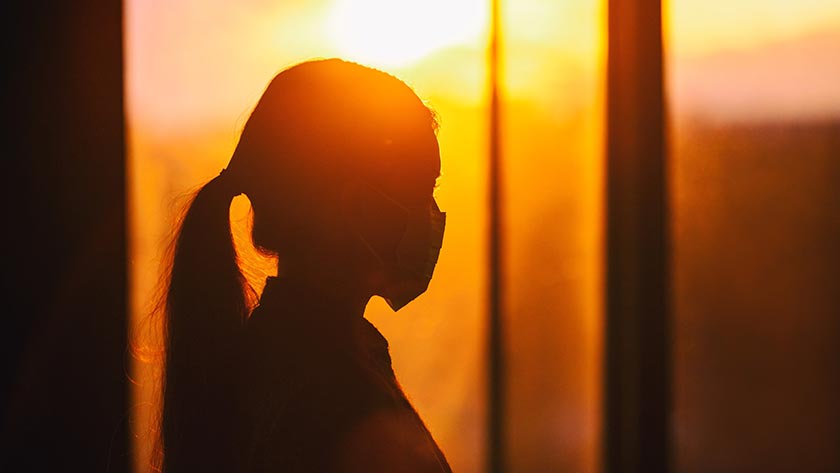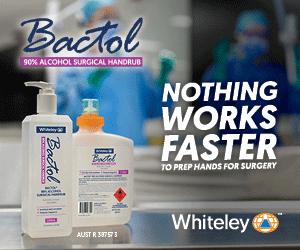Auckland nurse Toni (not her real name) has been working in an Auckland managed isolation facility (MIF) since March 2020 and says nurses are starting to burnout under a “relentless” workload.
“We don’t stop, we are eating on the run – there are just constant jobs to attend to. People think all we are doing is temperature and health checks, but there are more than 200 of those to do every day in our hotel. Apart from that, we deal with a myriad of problems and illnesses.”
An extra COVID-19 test is now required on arrival, on top of the day three and 12 nasal swab tests. This has added to the workload, which she says is also exacerbated by constantly changing rules and guidelines.
“It’s really tough – we’re getting really tired.”
An experienced nurse who has spent many years working in remote communities overseas, Toni picked up some MIF shifts when lockdown hit. But even she – experienced in challenging environments – is considering quitting.
Nurses are regularly verbally abused, as guests “offload” their frustrations on the frontline workers – often, the only people they see. Mental health issues such as panic attacks and claustrophobia are frequent, triggered by the isolation. “People might have depression and anxiety, which is normally under control, but when they’re alone in a room, and not sleeping, they can be triggered.” Occasionally, there were suicidal guests, requiring extra vigilance. A widowed guest told nurses last year she no longer wished to live. Dealing with such anguish, without the ability to comfort with hugs and touch, required a lot of time and energy, as nurses tried to counsel within social distancing requirements, she says.
Toni is generally able to guide guests through breathing exercises from the doorway in her personal protective equipment (PPE), staying and talking them through their panic, anxiety or insomnia. Workers can also call in a community mental health team, when needed.
“We are doing it psychologically and emotionally tough – and who’s looking after us?” Toni said. “We’re looking after each other as best we can, but we are just so busy.”
‘We get letters and messages of gratitude – those are the things that keep us going, people thanking us.’
Moments of appreciation help – the gratitude of a family who needed to get a child to hospital quickly, or a nervous guest who appreciated how gently she was swabbed. “The good thing is we know we have helped people. We get letters and messages of gratitude – those are the things that keep us going, people thanking us.”
The stigma and fear around COVID-19 contagion – usually poorly informed – meant nurses often kept to themselves after hours, fearing they might be a risk, or others’ reactions.
This sense of stigma had worsened lately, with new, more infectious variants spreading, Toni said.
Nonetheless, at work, the team made sure they found time to put some music on and have a sing while swabbing the guests – “that keeps us going”.
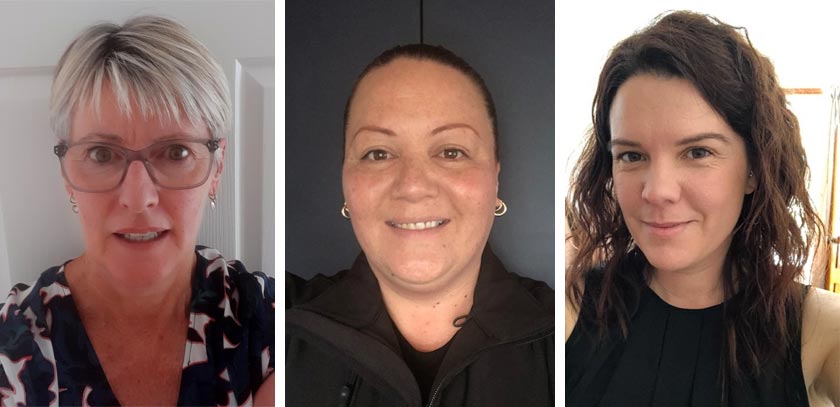
Public health nurse and NZNO delegate, Carmel Farmer, who has worked in a different managed MIF in Auckland since late 2020, has also been taken aback by the prevalence of mental health issues among guests – claustrophobia, agoraphobia, food phobias and insomnia, to name a few. “I was really quite shocked to see so many young people with depression, anxiety, eating disorders and phobias like obsessive-compulsive disorder.”
Such complex issues are daunting to deal with, without knowing a person’s history or being able to have in-depth consultations, and nurses were often without mental health experience. “We can’t go into their rooms, we don’t know their story, as there is only one of us on a shift.”
Some have threatened to harm or kill themselves. “It’s really scary stuff. We see five or six people with recognised mental health issues every day.”
Nurses are mostly able to de-escalate situations and calm guests. However, a community team of mental health professionals is on call for all the MIF facilities, and was “fabulous” – although also pretty stretched, Farmer said.
She agreed the overall workload is “unbelievable. It’s hard, very hard. We are constantly standing – it’s relentless”.
As well as the repeated swabbing of guests and staff, a typical day involves two nurses knocking at the rooms of up to 340 guests, stepping back to maintain a two-metre distance, verbally checking for any of the 12 COVID-19 symptoms and checking temperature. Face-to-face checks by nurses alternate with telephone calls by health-care assistants. Sometimes guests need pain relief or medication for long-term conditions, such as diabetes or hypertension.
Most – “95 per cent” – of guests are “delightful”, but there are a few challenging ones, Farmer said. “Some people really appreciate us, but others not so much.” Some of those are stressed, unwell – mentally or physically – or grieving for dying relatives they are trying to reach.
“They’ve come back because mum or dad is dying, so they’re highly stressed and can be difficult to manage,” she said. “They can be pretty abusive and rude.”
The hardest thing for her is not being able to connect with guests in the way she does normally in the community, due to the sheer numbers.
“They never ask you your name, you don’t build a relationship with them. There are not many connections made, it’s just the nature of the beast. I find it a little frustrating. You feel like a servant at times.”
Similarly, with constantly changing staff, she misses feeling part of a team. “You miss that human contact. You don’t build rapport and connection – even with the other nurses, you don’t know them, as we are moved around.”
“A nurse can be very kind and lovely for the people who are lonely and sad – and the night is very long for the people who are lonely and sad.”
But there are also moments of connection. Those with insomnia are encouraged to ring down and talk to the night nurse, and often do so at 3am or 4am, just for a chat. “A nurse can be very kind and lovely for the people who are lonely and sad – and the night is very long for the people who are lonely and sad.”
Farmer also got to know some guests, when she helped a new mother through breastfeeding issues and a young women with concerns for a sibling, always with a two-metre distance and PPE.
Christchurch
NZNO Christchurch organiser Danielle Davies – who spent time working in an MIF facility last year – says there are about 66 NZNO members working in Christchurch facilities. Many are dealing with complex needs, including mental health, chronic conditions and the effects of an isolation setting.
The work is also impacting on their personal lives, with social ostracism from a fearful public. “Many have been told they’re not welcome at Christmas events, school and parent events – the social impact is more than you could ever be paid for.”
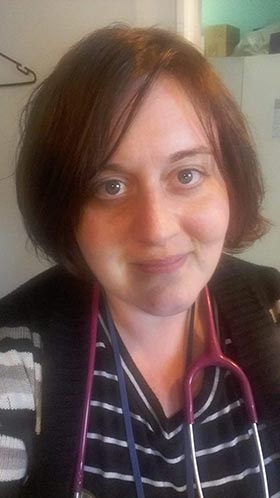
COVID-19’s impact has caused significant upheaval in the lives of thousands of returnees going through managed isolation and quarantine, she says. While some guests have simply cut a holiday or trip short, many have lived away from New Zealand for years and are disconnected from their home communities. For those most socially isolated, spending 14 days alone in a room can cause tremendous stress – particularly when they are having to rebuild their lives. “Nurses are charged with the difficult task of not only managing the COVID-19 testing and infection prevention and control, but also the holistic wellbeing of guests. When the stress boils over, nurses bear the brunt.”
New graduate from Ara Institute of Canterbury, Gemma Kelley, and her preceptor Mary Duggan – both NZNO delegates – have been working in some of the six MIQ facilities across Christchurch for several months. Kelley is one of 12 Christchurch graduates who took up a nurse-entry-to-practice place in MIQ facilities. “I was interested – jobs were kind of scarce at the time,” says Kelley, who had worked as a frontline ambulance officer for 13 years.
After a week-long orientation (which included a range of things from mental health, primary care, child and maternal health, cultural safety, Māori and Pacific health and managing sleep on shifts), she began working at the Novatel.
But, “I don’t think anything can prepare you for entering that environment”, Kelley said. She has now worked in three facilities, dealing with a range of illnesses, from cardiovascular to rheumatic heart disease and injuries – but found mental health issues the biggest challenge.
“It’s a really mixed bag, but probably mental health and people’s distress over their situation is the most prevalent thing.”
People trying to reach loved ones before they died, the general effects of isolation – particularly for the young, those travelling alone or with language barriers or medical conditions – all contribute to high distress levels.
“All they have got is us. The only people who converse with them are us. We are kind of filling a void where family should be.”
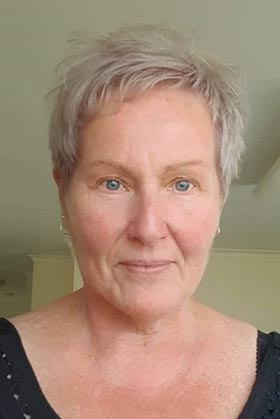
“Those are the people we try to maintain a bit more frequency of contact,” Kelley said. “All they have got is us. The only people who converse with them is us. We are kind of filling a void where family should be.”
When relatives die before guests can reach them, the nurses try to spend time talking to the guests and checking they are okay, she says. “It’s almost as if we have to kind of meet everybody as if they have some element of distress in their lives and work together to support them.”
If they need to enter the room, they must don full PPE “and that can be quite confronting” when nurses are trying to break down barriers.
She was also working at the city airport Sudima Hotel last November when an outbreak saw two nurses and several Russian and Ukrainian seamen infected. However, infection control processes had vastly improved since then, she said. N95 masks were now required for all interactions with guests, not just those with positive tests.
“I wasn’t aware of how much risk I was at before – it was potentially catastrophic,” Kelley said.
It is hard to face fear from the local community as a result of her work. “Our roles have meant we’ve become segregated in society, while we protect the wider community. At first, I felt it was quite a privilege, but now I’m aware there is an evolving stigma, and it feels like a burden.”
Kelley has had flatmates move out due to perceived danger of her role and knows of others who were unable to attend Christmas festivities due to family fears.
“It’s important to take the time to find out what’s underlying behaviour.”
Duggan, who returned from Queensland in August, says nurses are dealing with the “full spectrum” of health issues, including mental health and addictions. For the more complex cases, time and deeper conversations are required to understand what is going on with the guest. “It’s important to take the time to find out what’s underlying their behaviour.”
NZNO Auckland organiser Sharleen Rapoto says readily available PPE and consistent up-to-date guidelines on COVID-19 infection control are needed, particularly with the new variants. “If the communication [around guidelines] was clear to guests, that would decrease anxiety for our staff, as they’re getting shot from all directions.”


